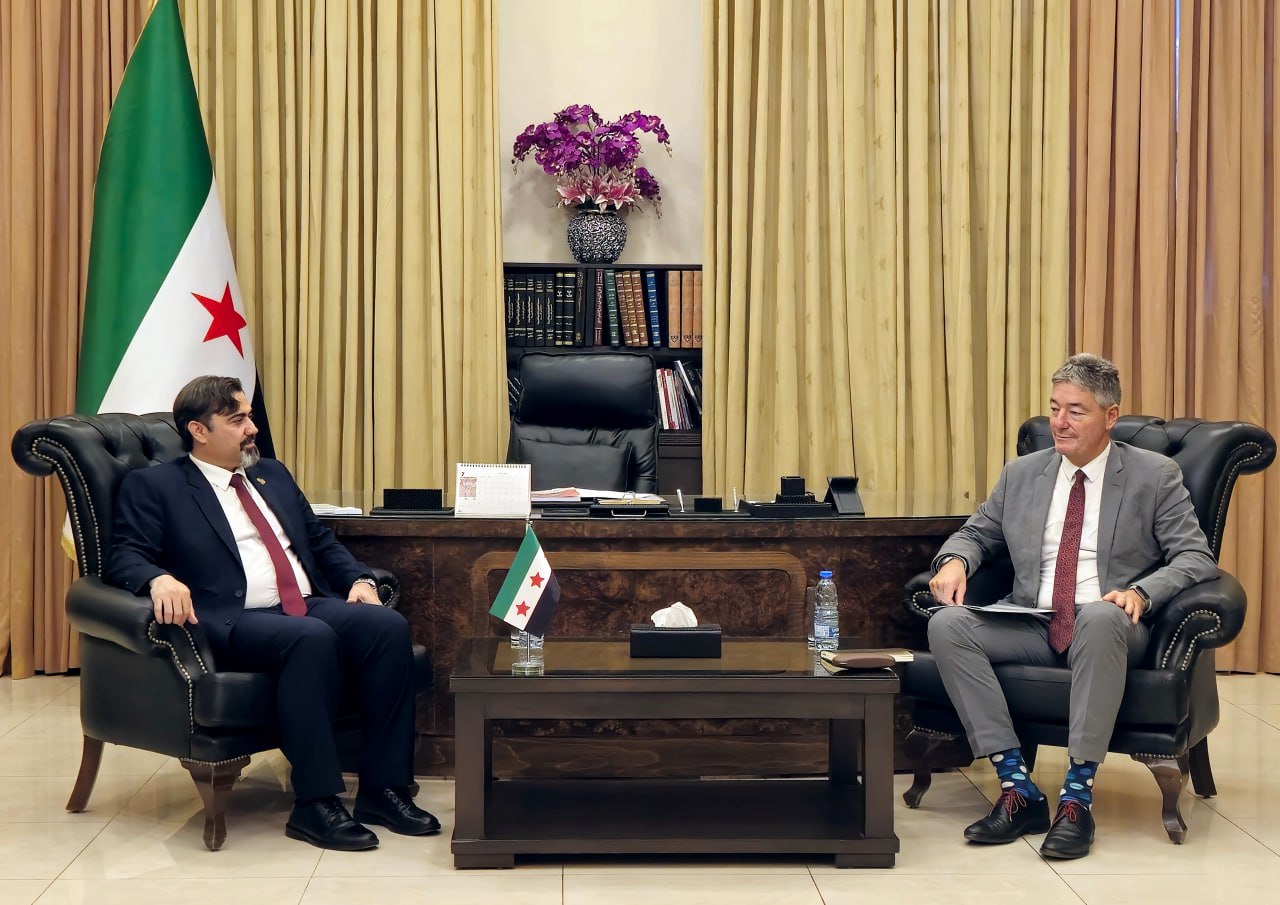Syrian Minister of Education, Dr. Mohammad Abdul Rahman Turko, held talks on Sunday with Michael Unmacht, Head of the European Union Delegation to Syria, to discuss prospects for deepening cooperation in the education sector.
The meeting, held at the Ministry’s headquarters in Damascus, focused on expanding EU support for Syria’s embattled education system, which has been severely impacted by over a decade of conflict. According to Syria’s state-run Ikhbariya TV, Minister Turko stressed the importance of broadening cooperation with European partners to confront the challenges facing the education system and accelerate its recovery.
“We value the efforts of the European Union in supporting not just education, but several other critical sectors in Syria,” Turko said, during a meeting attended by Deputy Minister for Educational Affairs Ahmad Hassan and senior officials from both sides.
EU envoy Unmacht expressed the Union’s readiness to scale up its assistance, especially in areas related to teacher training, vocational education, and curriculum modernization. He reiterated the EU’s willingness to work with Syrian authorities to enhance the quality of education and equip educators with the necessary skills to meet evolving global standards.
“We are prepared to listen to the Syrian government’s vision for reforming the education system, and we are committed to supporting practical, inclusive, and high-quality training programs,” Unmacht said.
A Struggling System in Urgent Need of Aid
This diplomatic exchange comes against the backdrop of Syria’s deteriorating educational infrastructure. In June, Minister Turko revealed that 40% of schools across Syria—roughly 7,849 institutions—have been destroyed during the conflict. The government is currently working to rehabilitate these schools to accommodate over 1.5 million students, including those returning from neighboring countries and refugee camps, as well as children who dropped out during the war.
To address the crisis, the Ministry launched an Emergency Education Response Plan in May, aimed at stabilizing the system and laying the groundwork for long-term reforms. According to Turko, this two-pronged strategy consists of immediate response measures and a broader strategic plan that outlines Syria’s educational roadmap in the post-war period.
Curriculum Reform and Teacher Development
In a bid to modernize education, the ministry is planning a comprehensive overhaul of national curricula, with updated materials expected to be introduced in the upcoming academic year. The reforms will involve collaboration between local and international experts to ensure the new curricula reflect global educational standards.
Turko also highlighted an ambitious initiative to evaluate and retrain Syria’s 253,000 teachers, aiming to improve pedagogy and instructional quality across the board.
“We are paying special attention to strengthening language skills, particularly in English as a global language, while also preserving and enhancing formal Arabic proficiency,” Turko explained. “Language is the passport for our students’ future in higher education—both at home and abroad.”
Civic Values and Digital Transformation
Another cornerstone of the ministry’s vision is embedding civic education and digital literacy into the reformed curriculum. The updated approach will emphasize citizenship, tolerance, respect for the rule of law, and social cohesion, alongside digital skills and AI preparedness—a reflection of Syria’s broader ambition to modernize its education system in step with the digital age.
Turko concluded by emphasizing the importance of equitable school reconstruction across all war-torn regions and stressed that rebuilding efforts must be coordinated across relevant government ministries.
This article was translated and edited by The Syrian Observer. The Syrian Observer has not verified the content of this story. Responsibility for the information and views set out in this article lies entirely with the author.


